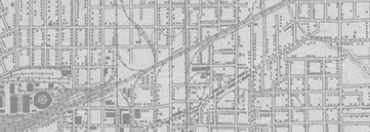


Back
Photocopy of typed letter to Robert Loomis at Random House from Jim Bishop
Photocopy of one-page typed letter from Jim Bishop to Robert Loomis, the Editor of Random House, written on April 4, 1966 in which Bishop states that he will be going ahead with his book on President Kennedy's assassination despite Mrs. Kennedy's objections. This copy is a photocopy of the original typed letter. In the letter, Bishop admits that "when Mrs. John F. Kennedy warned she would shut off my sources of information, she wasn't speaking idly. They have been shut." Jim Bishop goes on to state that there is no rush to publish his book. Not only does he not want to engage in a publishing race with William Manchester, Manchester's book "The Death of a President," which was endorsed as the "official" account by the Kennedy family, will then become source material for his and "dozens of Kennedy books as yet unborn." Bishop concludes the letter to Robert Loomis by stating that he intends to do research for a book on Washington before he tackles the book on Kennedy, which will require a great deal of digging and research.
Photocopy of typed letter to Robert Loomis at Random House from Jim Bishop
04/04/1966
Paper
11 × 8 1/2 in. (27.9 × 21.6 cm)
The Sixth Floor Museum at Dealey Plaza Collection
2018.071.0003
Even though this letter is unsigned, it is very likely that this letter was originally written by Jim Bishop. The context of the letter, which discusses the writting and publishing of a book about the Kennedy assassination despite Mrs. Kennedy's objections, as well as the reference to the author's wife "Kelly" at the end of the letter, supports the author's identity as Jim Bishop. - Stephanie Allen-Givens, Collections and Exhibits Manager
Despite Mrs. Kennedy's objections, Jim Bishop proceeded with his book, The Day Kennedy Was Shot, which was published in 1968. - Stephanie Allen-Givens, Collections and Exhibits Manager
Jim Bishop (1907-87) started his journalistic career at the New York Daily Mirror in 1930. He would go on to serve as associate editor of Collier's Magazine, executive editor of Liberty Magazine and a longtime columnist with King Features Syndicate, though by the 1950s he was primarily recognized as a best-selling author. In addition to a series of religious titles, his 1955 examination of the Lincoln assassination, The Day Lincoln Was Shot, sold more than 3 million copies. He continued his focus on the presidency the following year with a Cosmopolitan article, "A Day with Dwight D. Eisenhower." He had just completed the manuscript for the book, A Day in the Life of President Kennedy, ten days before the assassination. The book was published the following year and was one of the top ten books in sales for 1964. A follow-up title, A Day in the Life of President Johnson, was published in 1967. Some four years after his correspondence with Mrs. Kennedy, Bishop's The Day Kennedy Was Shot was finally published in 1968. As of 2020, the book remains in print more than half a century later. - Stephen Fagin, Curator
Photocopy of typed letter to Robert Loomis at Random House from Jim Bishop
Photocopy of one-page typed letter from Jim Bishop to Robert Loomis, the Editor of Random House, written on April 4, 1966 in which Bishop states that he will be going ahead with his book on President Kennedy's assassination despite Mrs. Kennedy's objections. This copy is a photocopy of the original typed letter. In the letter, Bishop admits that "when Mrs. John F. Kennedy warned she would shut off my sources of information, she wasn't speaking idly. They have been shut." Jim Bishop goes on to state that there is no rush to publish his book. Not only does he not want to engage in a publishing race with William Manchester, Manchester's book "The Death of a President," which was endorsed as the "official" account by the Kennedy family, will then become source material for his and "dozens of Kennedy books as yet unborn." Bishop concludes the letter to Robert Loomis by stating that he intends to do research for a book on Washington before he tackles the book on Kennedy, which will require a great deal of digging and research.
Photocopy of typed letter to Robert Loomis at Random House from Jim Bishop
04/04/1966
Letters
Author
Kennedy, John F.
Kennedy, Jacqueline
Bishop, Jim
Manchester, William
Warren Commission
Warren Report
New York
Paper
11 × 8 1/2 in. (27.9 × 21.6 cm)
The Sixth Floor Museum at Dealey Plaza Collection
2018.071.0003
Even though this letter is unsigned, it is very likely that this letter was originally written by Jim Bishop. The context of the letter, which discusses the writting and publishing of a book about the Kennedy assassination despite Mrs. Kennedy's objections, as well as the reference to the author's wife "Kelly" at the end of the letter, supports the author's identity as Jim Bishop. - Stephanie Allen-Givens, Collections and Exhibits Manager
Despite Mrs. Kennedy's objections, Jim Bishop proceeded with his book, The Day Kennedy Was Shot, which was published in 1968. - Stephanie Allen-Givens, Collections and Exhibits Manager
Jim Bishop (1907-87) started his journalistic career at the New York Daily Mirror in 1930. He would go on to serve as associate editor of Collier's Magazine, executive editor of Liberty Magazine and a longtime columnist with King Features Syndicate, though by the 1950s he was primarily recognized as a best-selling author. In addition to a series of religious titles, his 1955 examination of the Lincoln assassination, The Day Lincoln Was Shot, sold more than 3 million copies. He continued his focus on the presidency the following year with a Cosmopolitan article, "A Day with Dwight D. Eisenhower." He had just completed the manuscript for the book, A Day in the Life of President Kennedy, ten days before the assassination. The book was published the following year and was one of the top ten books in sales for 1964. A follow-up title, A Day in the Life of President Johnson, was published in 1967. Some four years after his correspondence with Mrs. Kennedy, Bishop's The Day Kennedy Was Shot was finally published in 1968. As of 2020, the book remains in print more than half a century later. - Stephen Fagin, Curator









